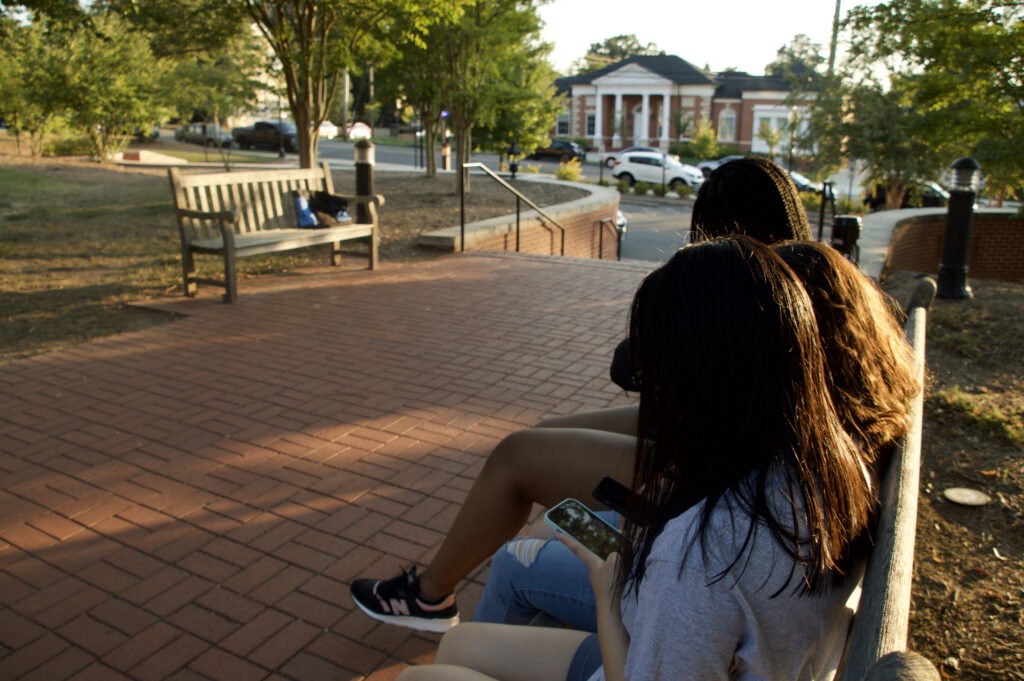Virginia TikTok ban forces students to adapt to new law over concerns of user security and in-app privacy
3 min read
APOGEE still allows access to TikTok Abbey Magnet / The Weekly Ringer
by TANNER GLASCOCK
Staff Writer
On July 1, a statewide ban on the usage of TikTok by state-affiliated entities went into effect. The ban was passed by the Virginia General Assembly and signed into law by Gov. Glenn Youngkin in April. The University of Mary Washington, being a public university, is subject to this law and now required to block applications run by China-based companies ByteDance Ltd. or Tencent Holdings Ltd., such as TikTok and WeChat on University networks and devices.
Despite the campus-wide ban, students have already begun finding ways around the firewall, and they have noticed that APOGEE, the residential Wi-Fi network used in on-campus housing, does not block access to the apps subject to the ban, such as TikTok.
“Well, on APOGEE it still lets me go on it,” said Suzanna Mayer, a senior education major. “But I have also been going on my data, using my LTE.”
In a campus-wide email sent out on June 20, Executive Director of University Communications Amy Jessee released a statement written by UMW Chief Information Officer Hall Cheshire that established the guidelines for UMW entities that previously utilized TikTok as a marketing tool. While some students have been able to effectively avoid the ban, UMW clubs and organizations are now required under law to cease the usage of their TikTok accounts.
“UMW sponsored TikTok accounts may not be used in any manner after July 1, 2023,” the statement said. “Social media managers are advised not to delete accounts, but simply to stop using them – this will protect the accounts from being spoofed in the future.”
UMW-affiliated TikTok accounts that were required to go offline include the Women’s Lacrosse team, Women’s Soccer team, Campus Recreation and the official University account. Prior to the law officially going into effect, the Speaking and Writing Center—another campus entity impacted by the ban—posted the following statement to their TikTok page: “As of July 1, due to a new Virginia law, we will no longer be active on TikTok. Please continue to follow us on Instagram @umwspeak_write and on Facebook at UMW Speaking and Writing Center.”
Some students have expressed skepticism of the ban and the reasoning behind it.
“I think legislation like this being passed could definitely lead to more restrictions being placed on the media in the future. I think this country prides itself on freedom of speech and our news/media being for the people, and I think restricting access to apps, websites, etc. is contradictory,” said Cailyn Tripp, a senior communication and digital studies major. “I also think at the end of the day if people want to find a way, they will—especially with how much technology has evolved in the past 20 years—that if people are desperate to get on TikTok, they will.”
The Virginia law cites security concerns as reasoning for the ban. User safety regarding TikTok has been a subject of discourse throughout recent years due to the app’s advanced algorithm and data-gathering methods used to generate each individual user’s “For You” page. The “For You” page on TikTok provides a personalized feed of content to each user based on their viewing habits. Prior to the enactment of the Virginia law, the House Committee on Energy and Commerce held a hearing in which members questioned the CEO of TikTok, Shou Zi Chew, on consumer safety within the app. The hearing, which took place in March, brought to light the increasing tensions between lawmakers and the China-based company that owns TikTok.
“I do think it is very interesting that Facebook has been proven to be taking our data, and there is a lawsuit going on, but because it’s happening in America or it’s a United States made company it is not being treated the same way as foreign made company,” said Mayer. “It’s definitely a big push for the threat to be scarier in the eyes of the government, and that’s probably why it’s being publicized more.”











